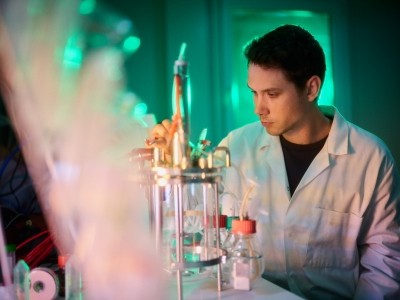9 out of 10 parents worry about toxic chemicals in baby products

In its annual Green Baby survey, the charity found that 90% of parents were ‘concerned’ or ‘very concerned’ that toxic chemicals could harm their baby’s health.
Indeed, 89% of respondents also said they thought harmful chemicals in baby products should be banned, while 11% assumed they had already been banned. Another 77% said they thought that the UK government was not doing enough to protect consumers from harmful chemicals.
'Exposure to toxic chemicals', 'air pollution' and the 'impacts of climate change' were the parents’ top concerns in relation to babies and children’s health.
The campaign is now calling for toxic chemicals, especially those present in baby products, to be on the public health agenda, while also ensuring governments and companies safeguard our health.
According to Wen, a new born baby’s skin is five times thinner than adult skin, which makes it more permeable so it absorbs chemicals more easily.
The charity also said that in the first weeks of life, the skin’s protective pH and hydrolipid film is still forming along with the skin’s microbiome defence system and harsh synthetic ingredients can disrupt its development.
It also highlighted that a baby’s sweat glands are still developing during the first two years, and the sebaceous glands even longer, which makes babies more susceptible to bacteria, sensitivity, and dryness.
Going backwards after Brexit
Wen noted how in ChemTrust's review of UK REACH regulations in February 2024 – three years after Brexit – it was apparent that the UK has virtually stood still when it comes to banning and regulating toxic chemicals, and in some areas has gone backwards, with EU citizens being better protected than in British ones.
According to the charity's expert health advisor Helen Lynn, we are “sleepwalking into the next health emergency, with the government and business ignoring the clear link between exposure to toxic chemicals and adverse health impacts for babies and children.”
Lynn continued: “The developing foetus is particularly sensitive to even minute levels of certain chemicals that can cause cancers, birth defects and reduce fertility. The UK now lags behind in regulation of toxic chemicals and so it is key that we lobby our governments and policy makers to make the right decisions to keep us safe."
The natural cosmetics company Weleda is supporting Green Baby Day. Its UK MD Jayn Sterland said the Endocrine Disrupting Chemicals (EDCs) found in personal care products are “of particular concern to Weleda, as a pregnancy and baby skin care manufacturer.”
Sterland said that these have the “potential not only to negatively impact our hormones (for example thyroid health) but that of future generations.”
“For example, the EDC triclosan can still be found in some antibacterial washes and oral care products – exposure during pregnancy is of particular concern as it has been shown to cross the placenta,” continued Sterland.
‘Why aren’t toxic chemicals on the public health agenda?’
As part of the campaign, Wen is set to host an awareness day at 6pm on 12 June at Amnesty International in London, which will be marked by a discussion panel asking: ‘Why aren’t toxic chemicals on the public health agenda’.
Speakers will include: obstetrician and Scientific Advisor to Global Black Maternal Health and Tommy’s Charity, Dr Karen Joash, Green Party peer Baroness Natalie Bennett, Seyi Falodun-Liburd from We Level Up, Susanne Astic, Policy and Advocacy Advisor on Children’s Rights and Chemicals, CRIN. The panel will be chaired by Wen’s Expert Health Advisor Helen Lynn.
Wen said there are tens of thousands of chemicals in regular commercial use, many with little health and safety information, with the potential to harm our health, our fertility, the health of our children and future generations.
Children are particularly vulnerable and for a developing foetus, even minimal exposure can have serious, lifelong health consequences.
According to The Endocrine Society, exposure to certain chemicals before birth or in early life has been linked to a range of diseases, including cancer, birth defects, fertility, developmental, neurological, and immune disorders. Some chemicals can also impact the respiratory, reproductive, cardiovascular and urinary systems, and disrupt our endocrine system.
Recent examples include microplastic in baby poo and 109 toxic chemicals such as flame retardants, cosmetics ingredients, and plasticisers found in maternal and umbilical cord blood, including 55 that had never been found in people before.
According to the International Federation of Gynaecology and Obstetrics, ‘forever chemicals’ such as PFAS can affect foetal and maternal health.
Wen also highlighted that it has become increasingly difficult for couples to conceive – with sperm counts more than halved in the last 40 years – a decline of 60% since 1973.





















